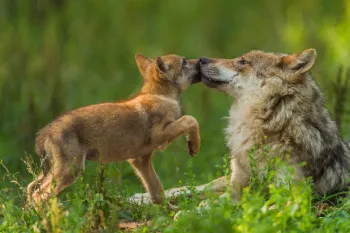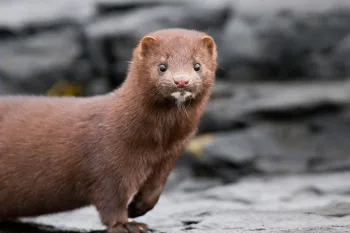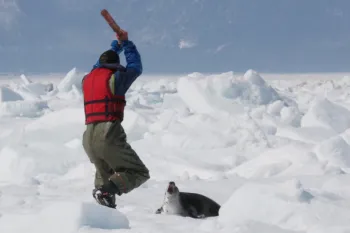BRUSSELS—Today, in a decision that undermines the credibility of EU nature laws and threatens the recovery of wolves across Europe, the European Parliament voted to back the European Commission’s proposal to weaken the protection of wolves, meaning that wolf hunting will now be possible again.
This vote is the last step of the legislative process to decrease the level of protection of the wolf in the EU, from strictly protected to protected. In March, the European Commission proposed to amend the protection of the wolf under the EU Habitats Directive, after the Bern Convention had accepted its request to downgrade the species’ protection in December. The EU Council approved that proposal a few weeks ago.
This decision marks a worrying precedent for European nature conservation. Under the EU Habitats Directive, decisions must be based on science. Strict protections have allowed wolf populations to recover, but the species continues to be in an unfavourable conservation status in six out of seven EU biogeographical regions. Moreover, scientific consensus suggests that increased wolf hunting is not an effective means of reducing conflict with agriculture, nor does it increase natural prey populations.
"Wolves are vital to healthy ecosystems, but today’s vote treats them as a political problem, not an ecological asset", said Ilaria Di Silvestre, Director of Policy and Advocacy for Europe at International Fund for Animal Welfare (IFAW). "There is no data justifying a lower level of protection, but the EU institutions decided to ignore science. Decisions made on the basis of political interests, instead of facts, risk undoing decades of conservation progress."
"This is a sad day for biodiversity and wild animals," said Léa Badoz, Programme Officer at Eurogroup for Animals. "The EU was once proud to lead on nature protection. Now we are seeing vital species like the wolf sacrificed for short-term political interests that will benefit no one. Member States must now step up and do the right thing. Wolves still need strong protection if we are serious about saving Europe’s nature."
Dr Joanna Swabe, Senior Director for Public Affairs at Humane World for Animals Europe, says: "The decision to lower the strict protection status of wolves does not absolve Member States from their responsibility to maintain a favourable conservation status for wolves, nor does it mean that they can avoid investing in solutions that facilitate and promote the coexistence of people and wolves."
Despite the Parliament’s vote, EU member states can still choose to keep wolves strictly protected – a step that nature conservationists strongly recommend. The Member States remain legally bound to ensure that their wolf populations achieve and stay at a favourable conservation status.
It is also deeply concerning that the European Parliament used an emergency procedure to push this startling proposal through, circumventing the ordinary legislative procedure for debating Commission proposals—as if authorising more wolf hunting was a matter of extreme urgency. This accelerated pace for weakening of nature laws is a disturbing trend that limits democratic debate and threatens the future of environmental protection in Europe.


